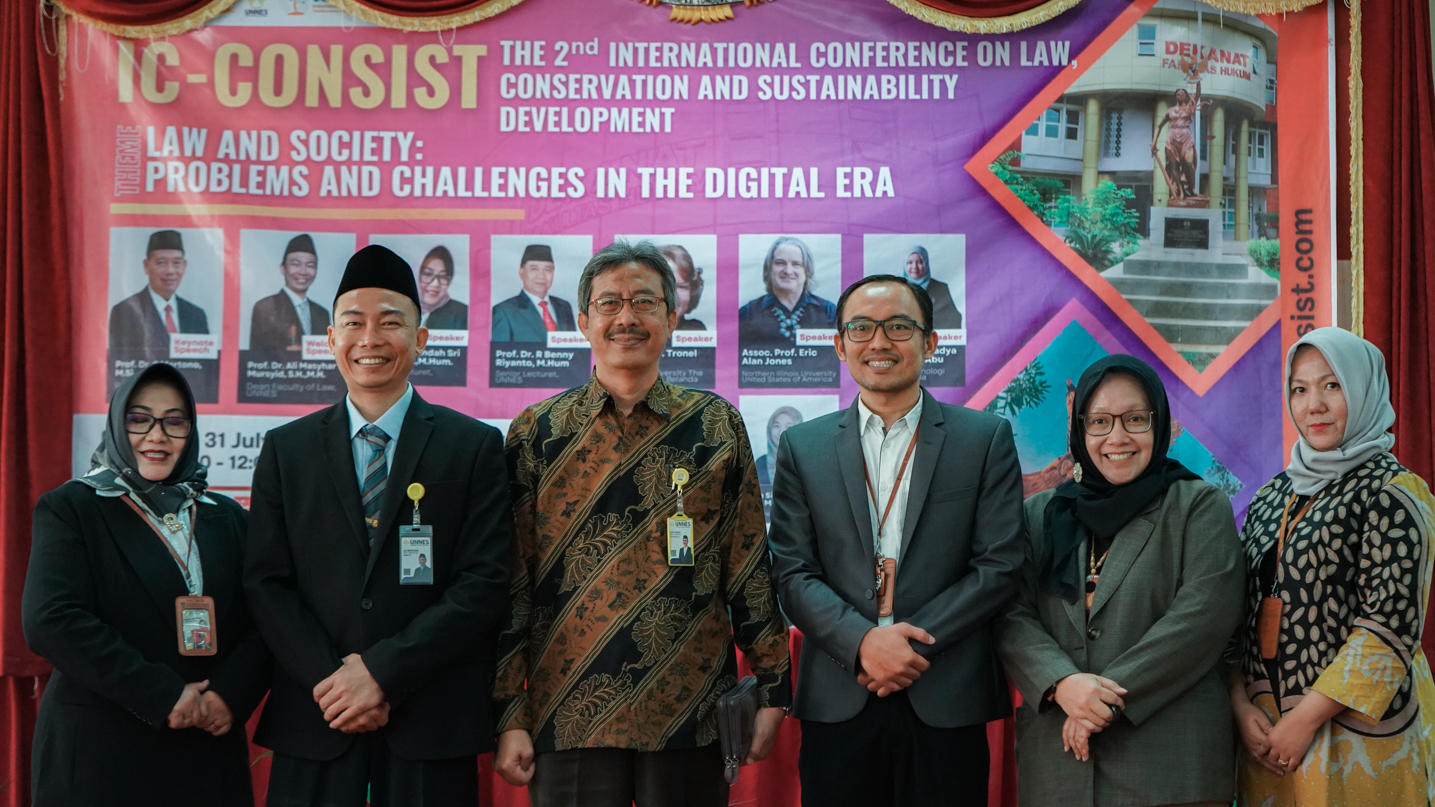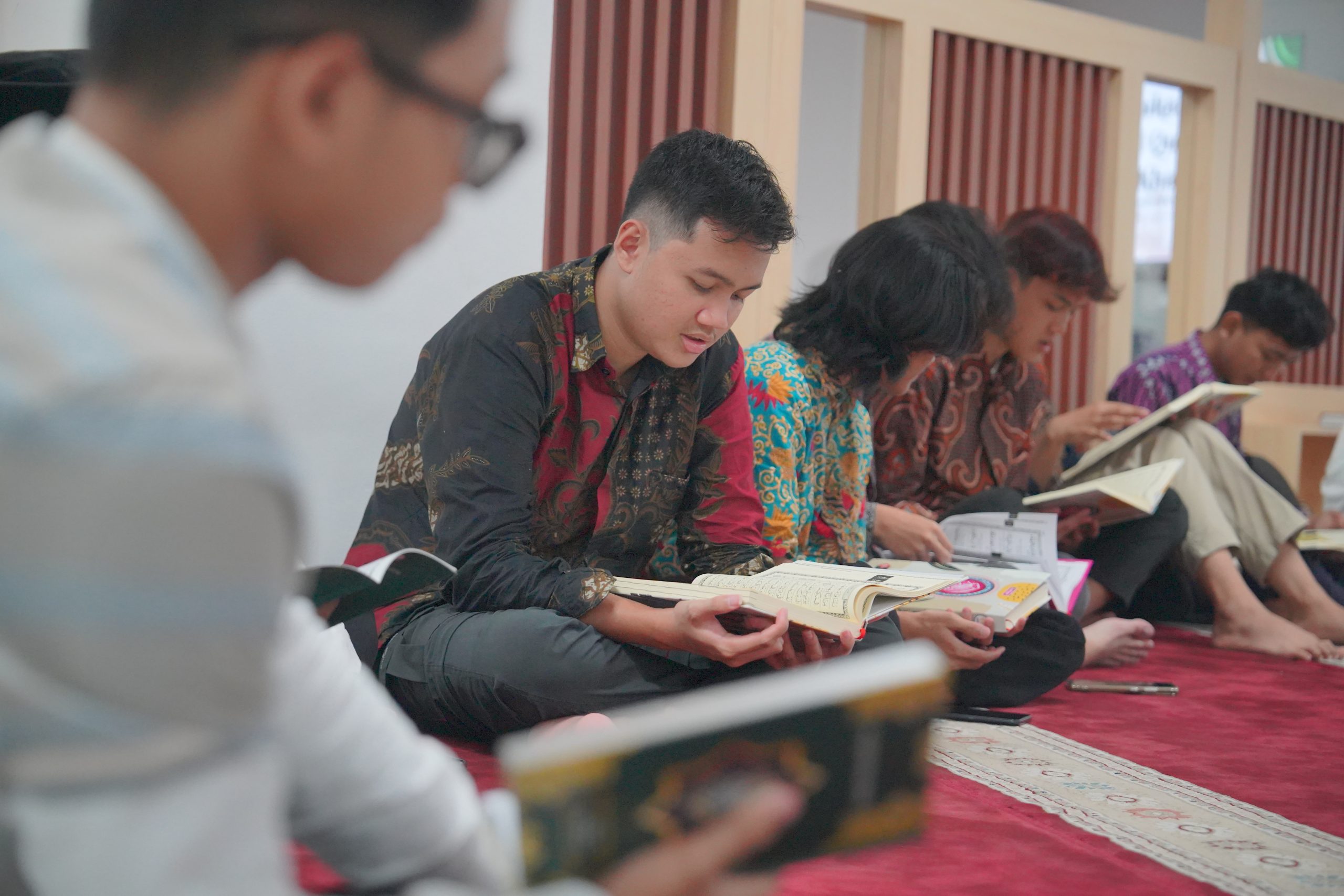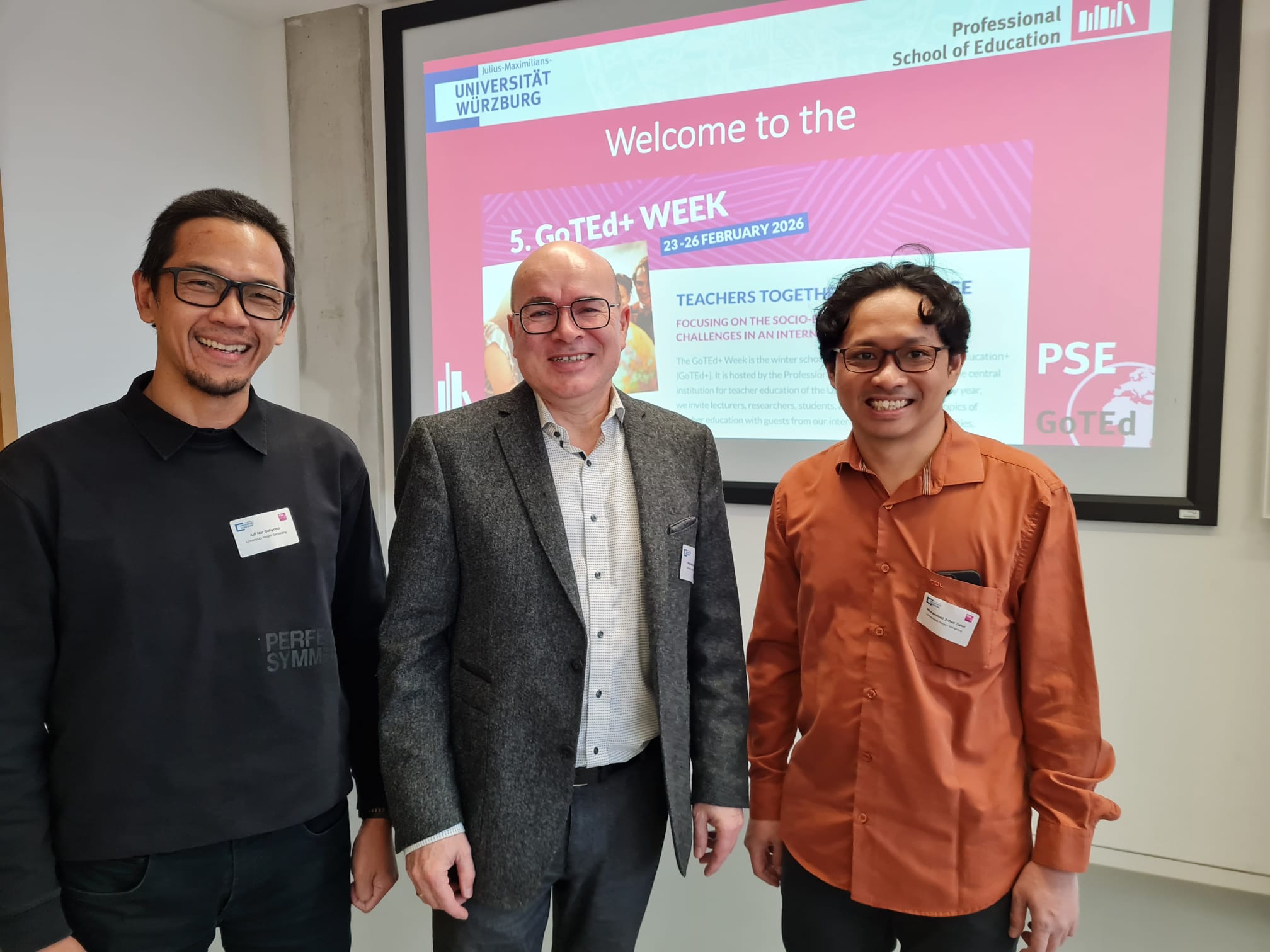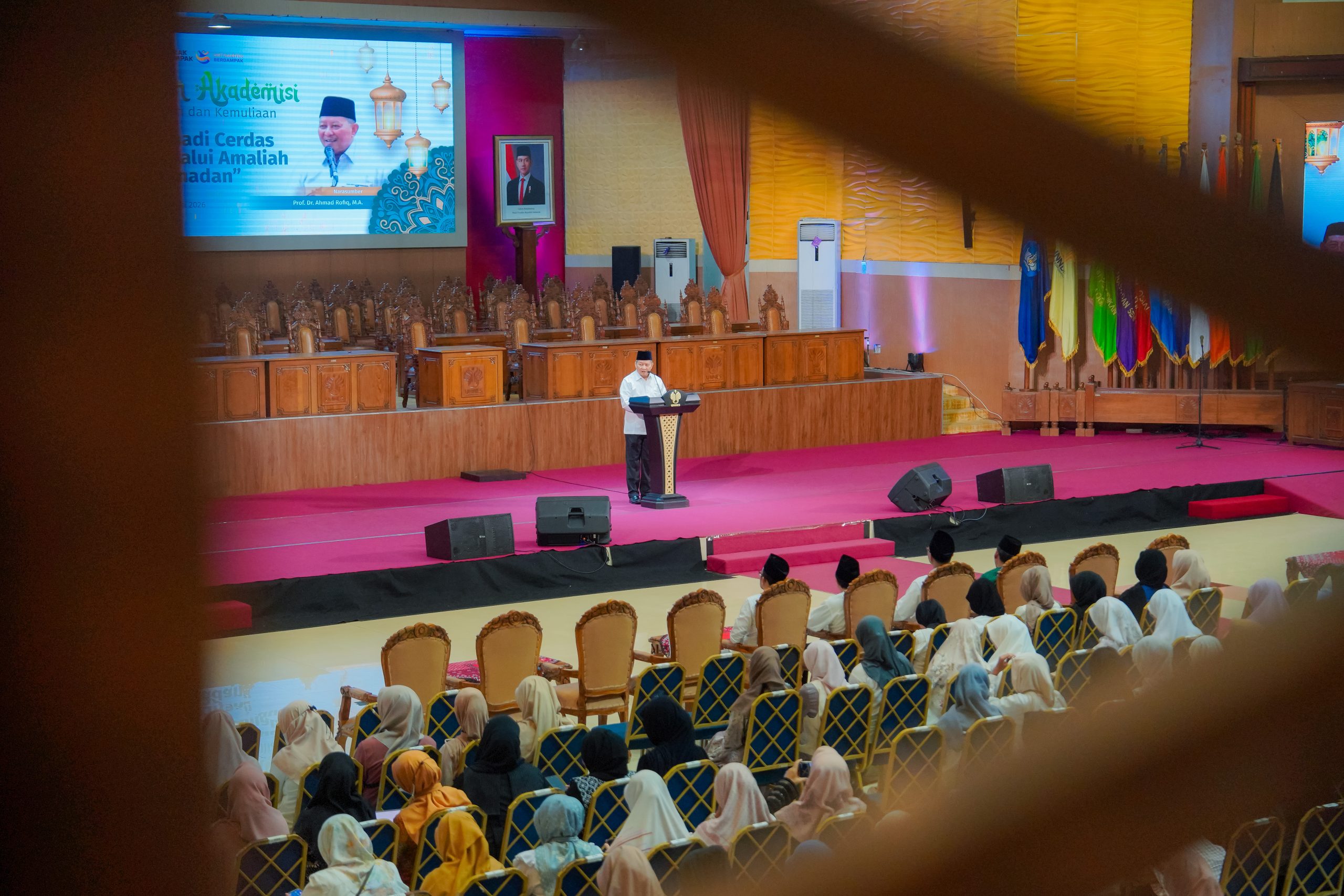Universitas Negeri Semarang (UNNES) kembali menunjukkan komitmennya dalam pengembangan ilmu hukum dan kontribusi terhadap masyarakat. Kali ini Fakultas Hukum UNNES kembali sukses menyelenggarakan International Conference on Law Conservation and Sustainability (IC-CONSIST) 2024. Konferensi yang bertajuk “Law and Society: Problems and Challenges in the Digital Era” ini berlangsung pada 30-31 Juli 2024 di Aula K3.307 Fakultas Hukum UNNES dan daring melalui zoom meeting.
Konferensi Internasional yang pada tahun ini merupakan tahun kedua digelar, menjadi ajang penting dalam diskusi dan kolaborasi internasional, yang menghadirkan para akademisi, praktisi hukum, dan peserta dari berbagai negara.
Lingkup IC-CONSIST 2024 mencakup berbagai topik yang relevan dengan perkembangan teknologi digital dan dampaknya terhadap hukum dan masyarakat. Topik yang dibahas antara lain teknologi digital dan hak asasi manusia serta kesetaraan gender, teknologi digital dan penegakan hukum, teknologi digital dan demokrasi, teknologi digital dan kesejahteraan sosial, teknologi digital dan konservasi, serta hubungan antara masyarakat Indonesia, teknologi digital, dan hukum syariah.
Konferensi dimulai dengan sambutan dari Prof. Dr. Ali Masyhar, Dekan Fakultas Hukum UNNES, yang menggarisbawahi pentingnya peran hukum dalam menghadapi tantangan di era digital. Prof. Ali Masyhar juga menekankan bahwa konferensi ini adalah platform yang tepat untuk berbagi pengetahuan dan mencari solusi bersama terhadap berbagai masalah yang dihadapi dalam era digital. Acara kemudian dilanjutkan dengan pembukaan IC-CONSIST 2024 oleh Wakil Rektor IV Bidang Kerja Sama, Bisnis, & Hubungan Internasional, Prof. Dr. Nur Qudus, M.T., IPM.,
Hari pertama IC-CONSIST 2024 menghadirkan sejumlah pembicara ternama dari dalam dan luar negeri. Dr. Indah Sri Utari, S.H., M.Hum. membahas tentang etika hukum dalam kecerdasan buatan, dengan topik “Artificial Intelligence and Legal Ethics: Building a Framework for Responsible AI”. Dosen Fakultas Hukum UNNES ini mengupas bagaimana kecerdasan buatan dapat digunakan secara etis dalam bidang hukum dan pentingnya membangun kerangka kerja yang bertanggung jawab untuk penggunaan AI.
Prof. Dr. R Benny Riyanto, M.Hum. dari UNNES menyampaikan pandangannya mengenai “Integrating Information Technology in Developing Civil Law Procedure: Challenges and Opportunities”. Dosen FH sekaligus Ketua Lembaga Penelitian dan Pengabdian kepada Masyarakat UNNES menguraikan tantangan dan peluang dalam mengintegrasikan teknologi informasi ke dalam prosedur hukum perdata, serta dampak positif yang dapat dihasilkan dari penggunaan teknologi dalam sistem hukum.
Dr. Trounsel Joubert dari Tilburg University, Belanda, membahas cara mengurangi dampak negatif Generative AI (GenAI) . Dengan topik “Migating GenAI’s negative impacts in indigenous knowledge from international and Vietnamese laws perspective” dinilai sangat relevan mengingat perkembangan pesat teknologi AI dan implikasinya terhadap pengetahuan dan kebudayaan tradisional.
Assoc. Prof. Eric Alan Jones dari Northern Illinois University, Amerika Serikat, menekankan pentingnya kolaborasi internasional antar sekolah hukum di era digital dengan topik “Strengthening International Collaboration Among Law Schools in the Digital Era: Enhancing Global Legal Education through Digital Innovation”. Assoc. Dosen Northen Illinois ini menggarisbawahi bagaimana inovasi digital dapat meningkatkan pendidikan hukum global dan memperkuat kerjasama antar institusi pendidikan hukum.
Prof. Madya Roziya Binti Abu dari Universiti Teknologi Mara, Malaysia, menyampaikan presentasi mengenai “Digital Citizenship, Understanding Digital Landscape Dynamics”. Prof. Madya membahas pentingnya memahami dinamika lanskap digital dan bagaimana kewarganegaraan digital dapat mempengaruhi kehidupan sehari-hari.
Pada hari kedua IC-CONSIST 2024, giliran para peserta yang berasal dari dalam dan luar negeri memaparkan hasil penelitian serta ikut serta dalam kegiatan diskusi. Setelah konferensi, para peserta memiliki waktu hingga 30 September 2024 untuk mengumpulkan makalah lengkap. Selain memberikan kesempatan kepada peserta untuk berjejaring dan membangun kolaborasi baru dengan rekan-rekan dari berbagai negara, konferensi ini juga membuka diskusi-diskusi menarik yang terjadi selama konferensi berlangsung.
Hal lain yang menarik dari konferensi ini adalah kesempatan bagi makalah yang terpilih untuk diterbitkan di jurnal-jurnal terindeks Scopus seperti Lex Scientia Law Review (Q2), Journal of Indonesian Legal Studies (Q1), Journal of Law and Legal Reform, serta jurnal-jurnal terindeks SINTA dari Fakultas Hukum UNNES dan mitra publikasi lainnya.
Mitra publikasi tersebut meliputi Jambura Law Review Universitas Negeri Gorontalo, Legality Universitas Muhammadiyah Malang, Jambe Law Journal Universitas Jambi, Volksgeist UIN Prof. KH. Saifuddin Zuhri Purwokerto, Jurisdictie dan De Jure UIN Maulana Malik Ibrahim Malang. Kesempatan ini memberikan nilai tambah bagi para peneliti untuk mempublikasikan karya ilmiah mereka di jurnal-jurnal bergengsi.
Dengan berakhirnya IC-CONSIST 2024, Konferensi ini diharapkan dapat menjadi agenda tahunan yang dapat memberikan kontribusi yang signifikan bagi perkembangan ilmu hukum.




